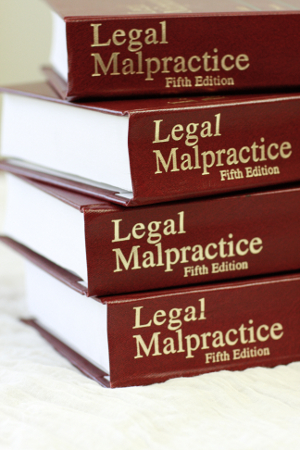As I mentioned in Part 1 of this series, you’ll need to fulfill at least three essential elements in order to have a valid legal malpractice claim:
- There was an attorney-client relationship, or at least a good faith basis for relying on the attorney.
- The attorney failed to exercise ordinary care, skill and diligence.
- Damages (loss of money, property, health, etc.) were caused by the attorney’s failure and not some other factor. As discussed in Part 1, the underlying damages must have been collectible.
In Part 2 we’ll cover #2 above – your attorney’s requirement to exercise a requisite standard of care which comparable attorneys in the state exercise on a day-to-day basis.
But I lost my case!
You can’t sue your lawyer just because you lost your case, even if you spent a lot of money. Sometimes it is extremely hard to predict a judge or jury’s reaction, and even cases that seem like a slam-dunk do not go as planned. Indeed, practicing law is more art than science. However, some of the acts (or omissions) by the lawyer associated with that loss may be grounds for a legal malpractice claim. A thorough review may show that the attorney missed a deadline, failed to conduct an adequate investigation, or didn’t disclose a potential conflict. With the other two elements, you may have a legal malpractice claim.
There is one more thing you’ll need to prove, but that’s best shown in the example below. You be the judge, and then I’ll share some more insight.
Is this a case of Legal Malpractice?
A woman tripped and fell in an unguarded hole and was injured. Although the property owner warned the woman about the hole, and the woman confirmed that she saw it before she fell, the woman hired a Lawyer A and sued the property owner to recover medical costs and other damages. Lawyer A missed the deadline to file a response to the property owner’s motion to dismiss the case, and didn’t even show up for the hearing. The judge granted the property owner’s motion for summary judgment and dismissed the case, and the woman received nothing.
The woman asked Lawyer B to sue Lawyer A for legal malpractice. Upon reviewing Lawyer A’s files, Lawyer B determined that, due to adequate notice provided about the hole, the woman had no case against the property owner regardless of Lawyer A’s performance. Does the woman still have a case against Lawyer A?
And the jury is back with the decision…..
Does the woman have a valid claim against Lawyer A? No. While you may not think this is unfair, the key fact that the court would review is the property owner’s adequate notice to the woman, or the underlying liability. In this case, the property owner was not liable to the woman. Since there was no underlying liability, the woman can’t prove damages (regardless of Lawyer A’s performance) caused by Lawyer A’s actions so the woman does not have a legal malpractice claim. While the woman may still be able to sue Lawyer A for Breach of Fiduciary Duty (breach of the duties of loyalty, candor and zeal), that’s a different claim which requires independent facts. We will discuss Breach of Fiduciary Duty in a future article.
Discussing the details of your potential malpractice claim
While you may be an avid fan of legal shows on TV, what you think is important may be different from what the law requires. This doesn’t mean that your legal malpractice claim is not viable, but it may take some work to uncover the necessary facts and fulfill the required elements for a legal malpractice case. When in doubt, have a qualified attorney conduct a full review before you spend too much of your valuable time and money.




